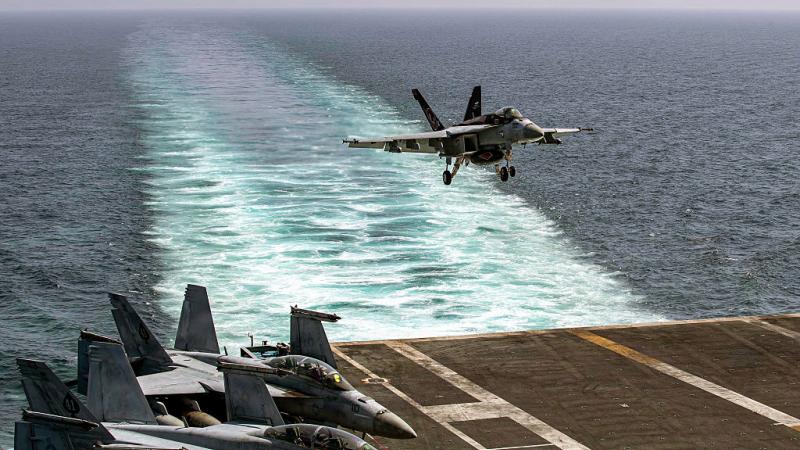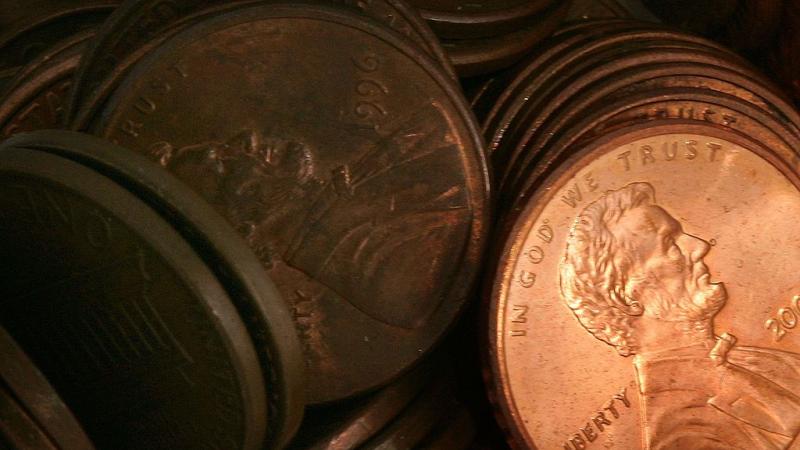U.S. too late to prevent nuclear Iran without military action: ex-CIA operative
Options to prevent Tehran from getting the bomb are increasingly limited, and reviving the 2015 nuclear deal will likely serve as a temporary delay
The U.S. likely missed its opportunity to stop Iran from building nuclear weapons without using military force, according to a former CIA operative.
Reuel Marc Gerecht, a senior fellow at the Foundation for Defense of Democracies, told the John Solomon Reports podcast that, given the advanced state of Iran's nuclear program, Washington will ultimately need to choose between containing a nuclear-armed Iran and taking military action to prevent a nuclear-armed Iran.
"Essentially, they're home free," Gerecht said of the Iranian regime's path to obtaining an atomic bomb. "Which means you either accept them going nuclear and you're perhaps willing to engage in some type of containment strategy — think of the Soviet Union. Or you strike. You try to prevent them from becoming a nuclear state."
Gerecht added that America's last best chance to strike Iran was when Donald Trump was president, echoing a point he made in a recent op-ed.
"Before January 2021, anti-deal Republicans who believe an Iranian nuke is simply unacceptable should have been encouraging Trump to bomb Iran's program," he wrote, referring to the 2015 nuclear deal with Iran. "That was the only approach that offered any chance of restraining Tehran's ambitions. Arms control always had a negligible chance of success with an oil-rich, exuberantly mendacious, revolutionary Islamic state."
Gerecht called Iran's nuclear infrastructure "essentially bomb-ready."
By all accounts, Iran is on the verge of having enough fissile material for a bomb. David Albright, a physicist and president of the Institute for Science and International Security, told Just the News that the regime is right now a couple weeks away from breaking out to a nuclear weapon — meaning it has enough highly enriched uranium for one — and a month away from having enough for two.
U.S. officials have said the accord being negotiated in Vienna to revive the 2015 deal would push Iran's breakout time to six to nine months. Israeli officials put the number at about four to six months, as does Albright.
Regardless, fuel for a nuclear weapon isn't enough — there also needs to be a warhead and some kind of delivery vehicle.
In six months, Albright said, Iran could have a crude device built that could be denoted underground or perhaps delivered by truck or boat. As for being able to target somewhere by putting a nuclear warhead on a ballistic missile, it "isn’t crazy" to say that's just a year or two off.
"Iran knows how to build nuclear weapons," Albright said. "They have stockpiled many crucial components and are pretty much within reach."
Albright, one of the few experts granted access to Iran's nuclear archive captured by Israel in 2018, added that we haven't passed "the point of no return," saying an Iranian bomb isn't inevitable.
However, he added, it's getting increasingly difficult to stop Iran, citing as an example Iran's Natanz nuclear facility, which was once above ground and easier to destroy but is now being replaced with a new underground facility under a mountain.
Because Iran is better fortifying its nuclear sites as times goes on, a military option is becoming much harder to execute, according to analysts. Some even argue airstrikes won't be enough and there will need to be some kind of land operation, perhaps to target the entrances and ventilation shafts, beyond trying to collapse the innermost structures through bombing.
"The longer you wait, the more likely a bombing run won't make a difference," said Gerecht, who noted the CIA has told the White House that if the U.S. attacks Iran's nuclear program, Iran will be able to reconstitute it in two months. "I think that's a big guess by Langley … but the main issue is any administration is going to be loath to ignore that assessment."
Indeed, even if a first strike is successful, the U.S. would likely need to target Iran's nuclear facilities more than once, according to nuclear and military experts.
Israel is known for being creative with military operations in the past, and Israeli officials have said behind closed doors that they have the capability to destroy what they need to inside Iran. But as Iran better protects its nuclear sites and builds some deeper underground, many experts argue Israel doesn't have powerful enough bunker-buster bombs to reach them while the U.S. does.
Beyond capability, another issue is Jerusalem's political will. According to Gerecht, the odds of Israel launching a military operation targeting Iran's nuclear facilities have "shrunk close to zero," which means the onus would be on the U.S. However, unlike a few years ago, no one in Washington — including hawkish Republicans — are currently talking about taking on such an endeavor.
Another issue flagged by analysts is Iran's extensive nuclear know-how, which can't be bombed away and only increases with time. The regime has its nuclear scientists train people at universities to bring up new experts.
"This isn't just 10 guys who you kill and that's it," said Albright. "They have deputies and students. You can't eliminate Iran's nuclear program by killing off leadership. It hurts, but they've demonstrated a tremendous amount of nuclear knowledge that isn't going away."
According to the Biden administration, reviving the 2015 nuclear deal holds the key to circumventing all these obstacles.
"The [deal], when fully implemented, closed off all pathways for Iran to obtain a nuclear weapon," a State Department spokesperson told Just the News. "Mutual return to full implementation of the deal is the best way to secure our urgent non-proliferation goals. It would require Iran to significantly roll back its nuclear program and resume enhanced monitoring and verification measures, once again blocking Iran's pathways to a bomb."
The spokesperson added that reviving the agreement would increase Iran's current breakout time.
However, any deal with Tehran will "surely leave the clerical regime in a position to produce highly-enriched uranium rapidly," said Gerecht, who noted Iran has the skills and large stockpiles of necessary components to build high-speed centrifuges.
Centrifuges are the machines used to enrich uranium, potentially to weapons-grade purity to fuel a nuclear bomb. The nuclear deal permits Iran to build more efficient, advanced centrifuges, allowing the regime to have far less machines and still produce greater output. Critics argue they could make it easier for the regime to conceal covert nuclear activity with smaller facilities — and allow the regime to build back its nuclear program quickly if there's a setback.
The nuclear deal, which Albright described as "very short-term and unfavorable to the U.S.," will lift all centrifuge-related restrictions on Iran in 2026.
According to Albright, the uptick in Iran's deployment of advanced centrifuges began in late 2020 and early 2021 — the same time President Biden was preparing to enter office.
"Much of this is on the Biden administration," he said. "They're pursuing a bad strategy, and we'll likely get a much weaker deal than in 2015."
Nile Gardiner, former foreign policy adviser to Margaret Thatcher, echoed that point this week, saying the administration is "obsessed" with reviving the deal and driven by an "appeasement mindset."














